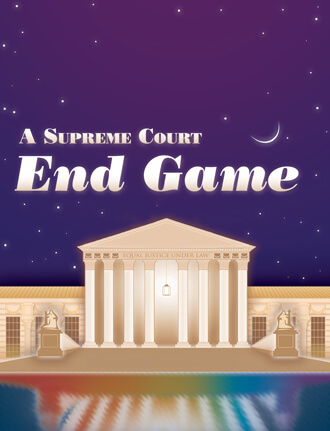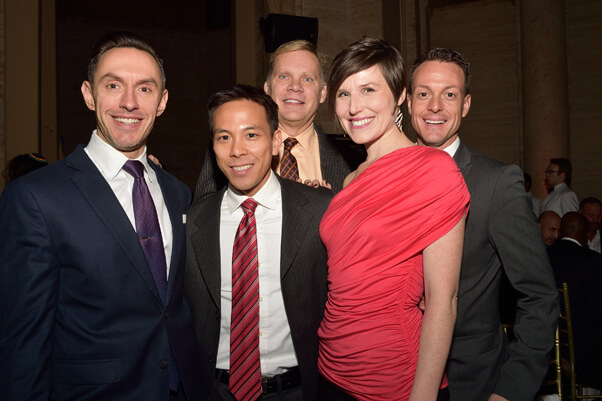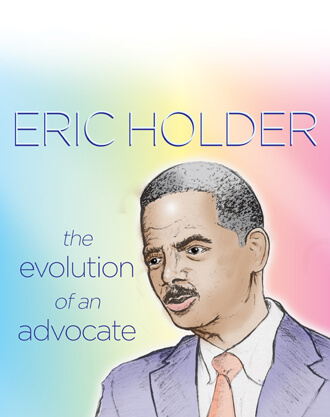BY ARTHUR S. LEONARD | In something of a judicial anti-climax, US District Judge Gustavo A. Gelpi, on April 7, declared the Commonwealth of Puerto Rico’s statutory ban on same-sex marriage unconstitutional.
Puerto Rico’s government has been complying with the Supreme Court’s marriage equality ruling since last summer while awaiting action in the local lawsuit pending in federal court. That’s not to say that the pathway to Gelpi’s April 7 order was without impediments.
Following the US Supreme Court’s 2013 decision striking down the federal Defense of Marriage Act, Lambda Legal filed suit on behalf of a group of Puerto Rico residents challenging the constitutionality of the commonwealth’s statutory same-sex marriage ban.
First Circuit slaps down first judge, reassigns suit, ending protracted litigation
At a time when federal trial judges nationwide seemed to be competing to see how fast they could strike down state bans on same-sex marriage, District Judge Juan M. Pérez-Giménez was determined to be an outlier. On October 21, 2014, he granted the commonwealth’s motion to dismiss the case, relying on a decade’s old Supreme Court ruling in Baker v. Nelson that dismissed a gay marriage suit out of Minnesota, finding no “substantial federal question” at stake. There was also no contrary ruling out of the First Circuit Court of Appeals –– under whose jurisdiction Puerto Rico falls –– given the success that the New England states also in the First Circuit had on winning victories at the state level.
Pérez-Giménez dismissed the Puerto Rico case just weeks after the Supreme Court refused to review the pro-marriage equality rulings by federal appeals courts in the Fourth, Seventh, and 10th Circuits. Those circuit courts had all ruled that Baker was no longer a controlling precedent.
Lambda filed an appeal to the First Circuit, which then put the case on hold when the Supreme Court announced early in 2015 that it would review the Sixth Circuit’s anti-marriage equality decision.
After the Supreme Court’s Obergefell v. Hodges ruling last June striking down state bans on same-sex marriage on 14th Amendment grounds, Puerto Rico Governor Alejandro Padilla, the lead defendant in Lambda’s case, issued an order that the commonwealth would comply. He also agreed to file a joint motion with Lambda in the First Circuit, informing that court that all parties to the case agreed that the Puerto Rico ban was unconstitutional.
The First Circuit agreed as well, vacated Pérez-Giménez’s decision last July, and sent the case back to him “for further consideration in light of Obergefell.” The First Circuit wrote, “We agree with the parties’ joint position that the ban is unconstitutional. Mandate to issue forthwith.”
Pérez-Giménez, however, did not take action “forthwith.” Instead, he pondered for eight months and then, on March 8, issued a peculiar decision stating that the Supreme Court’s decision did not necessarily apply to Puerto Rico because of its commonwealth status. This was nonsense, given a 1976 US Supreme Court decision that the residents of Puerto Rico are entitled to the rights protected under the 14th Amendment.
Once again Lambda Legal petitioned the First Circuit, which on April 7 responded, “The district court’s ruling errs in so many respects that it is hard to know where to begin.” After pointing out the 1976 Supreme Court ruling, the court observed that its own mandate from last July was clear and the federal district court was obligated to follow it.
The appeals court ordered that the clerk of the district court randomly assign the case to a different judge “to enter judgment in favor of the Petitioners promptly, and to conduct any further proceedings necessary in this action.”
Acting with alacrity, the clerk immediately reassigned the case to Judge Gelpi, who quickly issued his order the same afternoon and scheduled a conference of the lawyers in the case in his chambers on April 11, by which time they can draft a joint stipulation for him to endorse as the final judgment in the case.




































